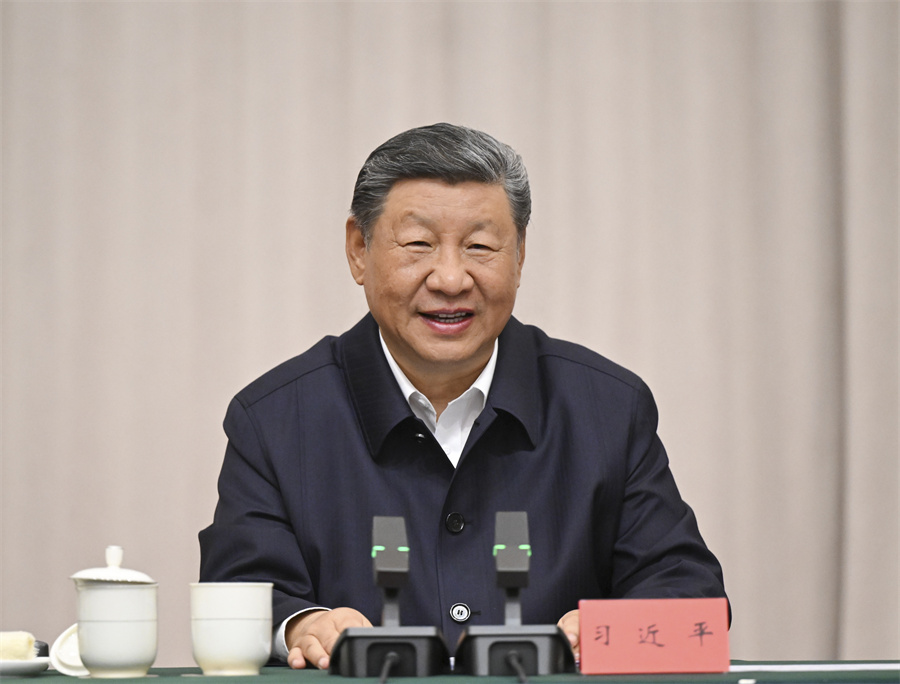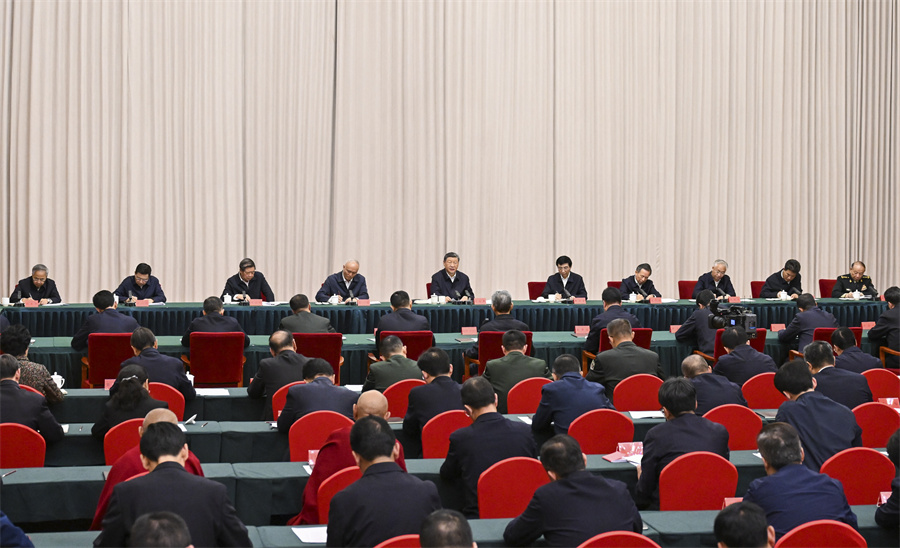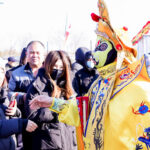On the afternoon of August 20, Xi Jinping, General Secretary of the Communist Party of China Central Committee, President of the State, and Chairman of the Central Military Commission, who led the central delegation to attend the celebrations for the 60th anniversary of the establishment of the Tibet Autonomous Region, listened to a work report from the Tibet Autonomous Region Party Committee and government in Lhasa and delivered an important speech.

On the afternoon of August 20, Xi Jinping, General Secretary of the Communist Party of China Central Committee, President of the State, and Chairman of the Central Military Commission, who led the central delegation to attend the celebrations for the 60th anniversary of the establishment of the Tibet Autonomous Region, listened to a work report from the Tibet Autonomous Region Party Committee and government in Lhasa and delivered an important speech.


